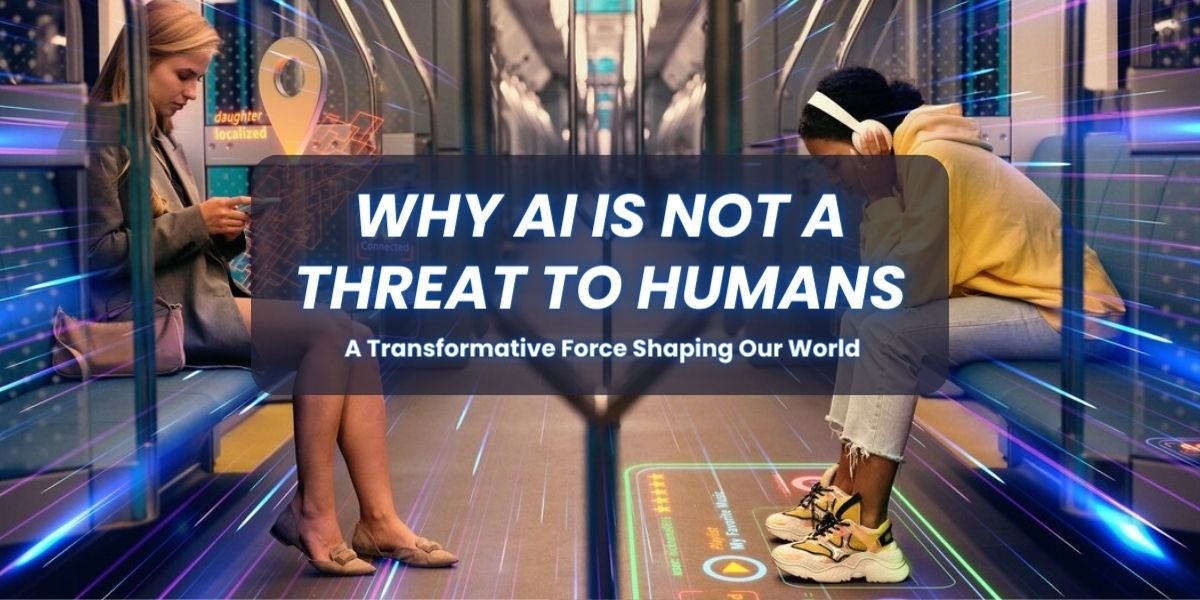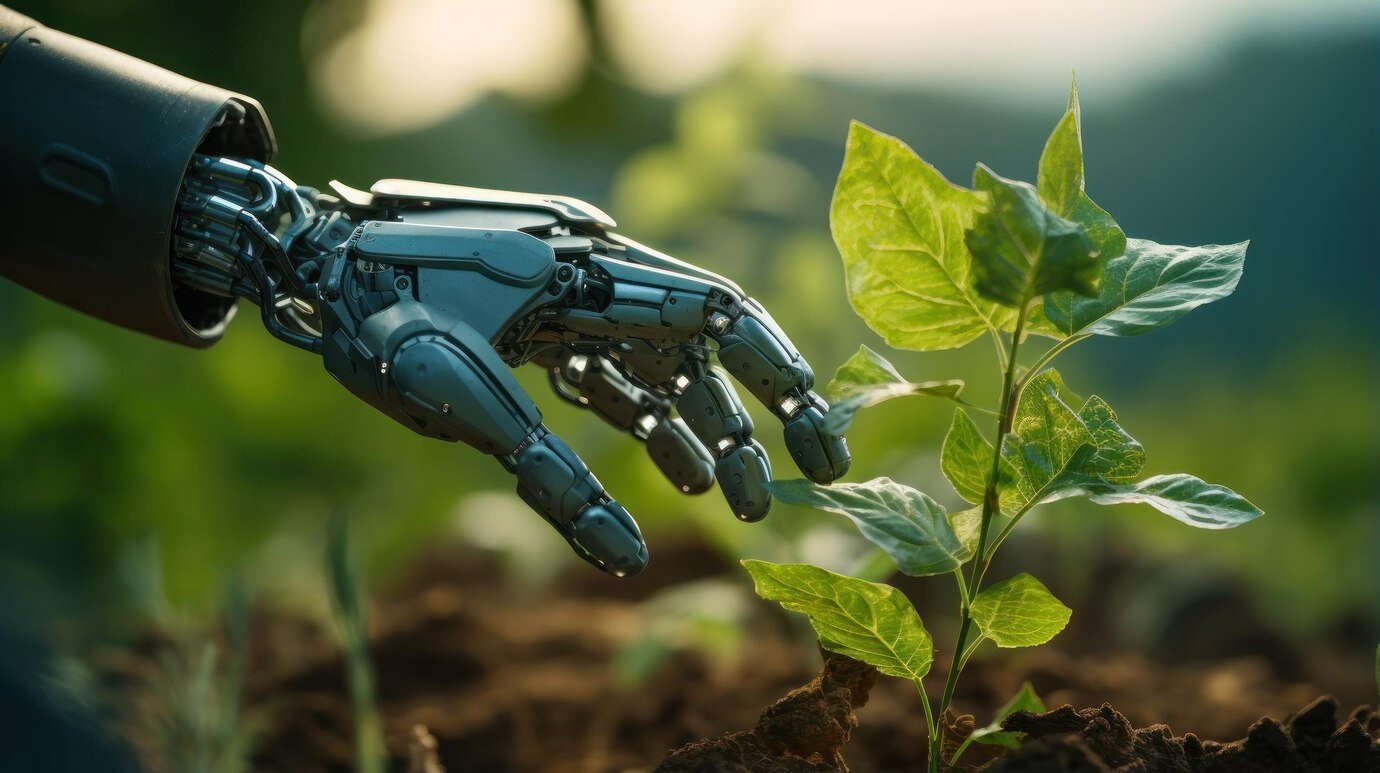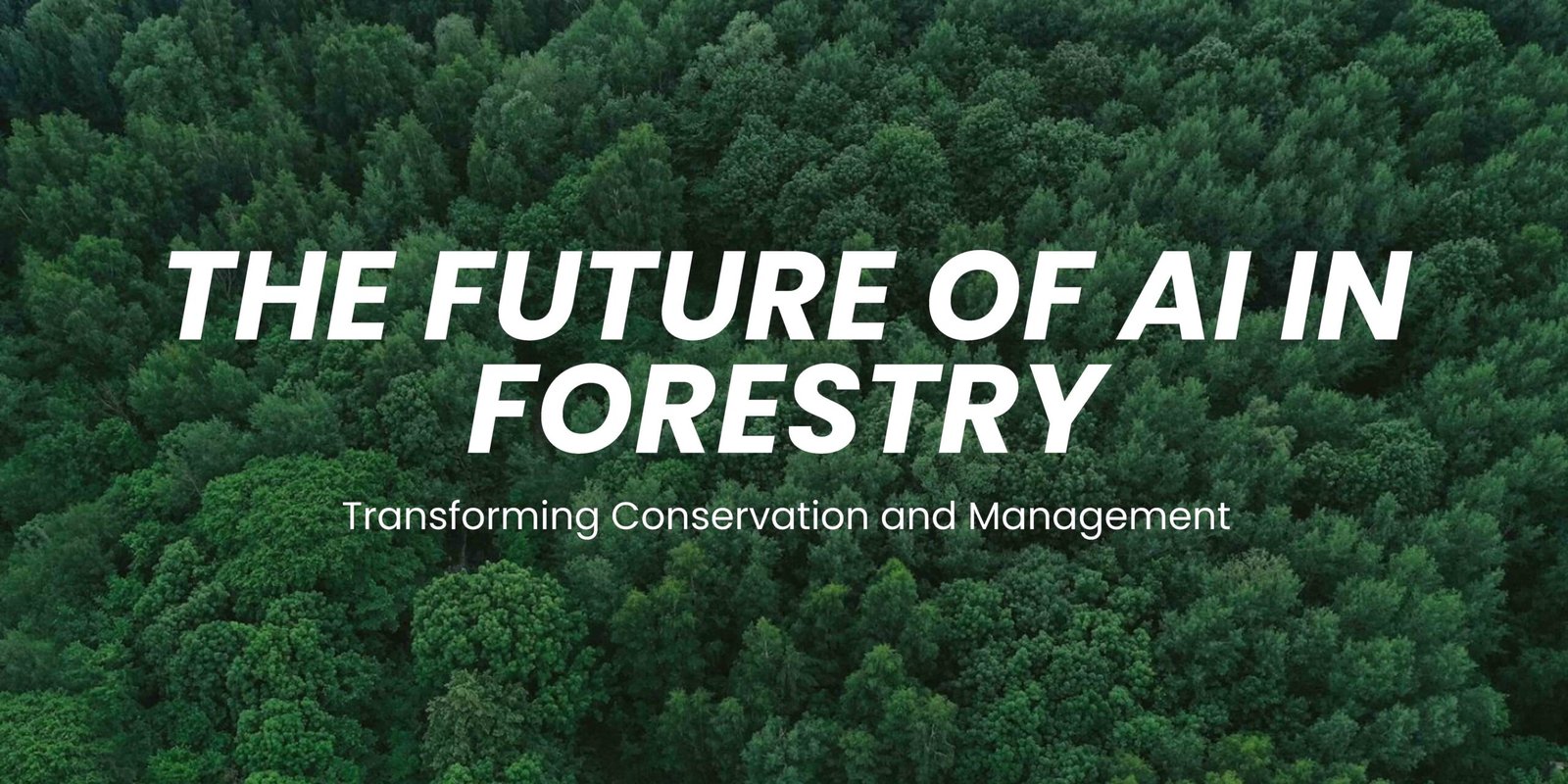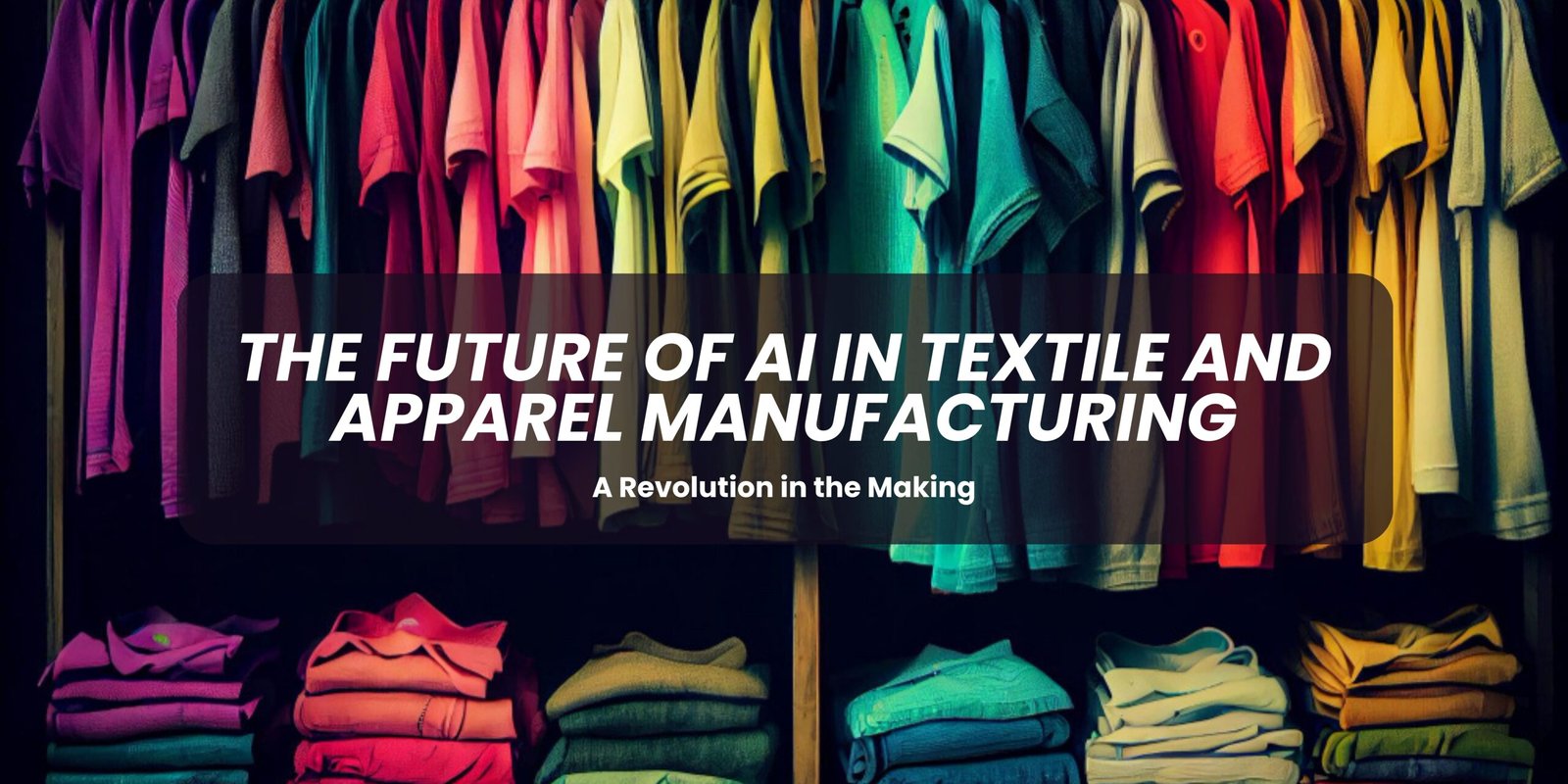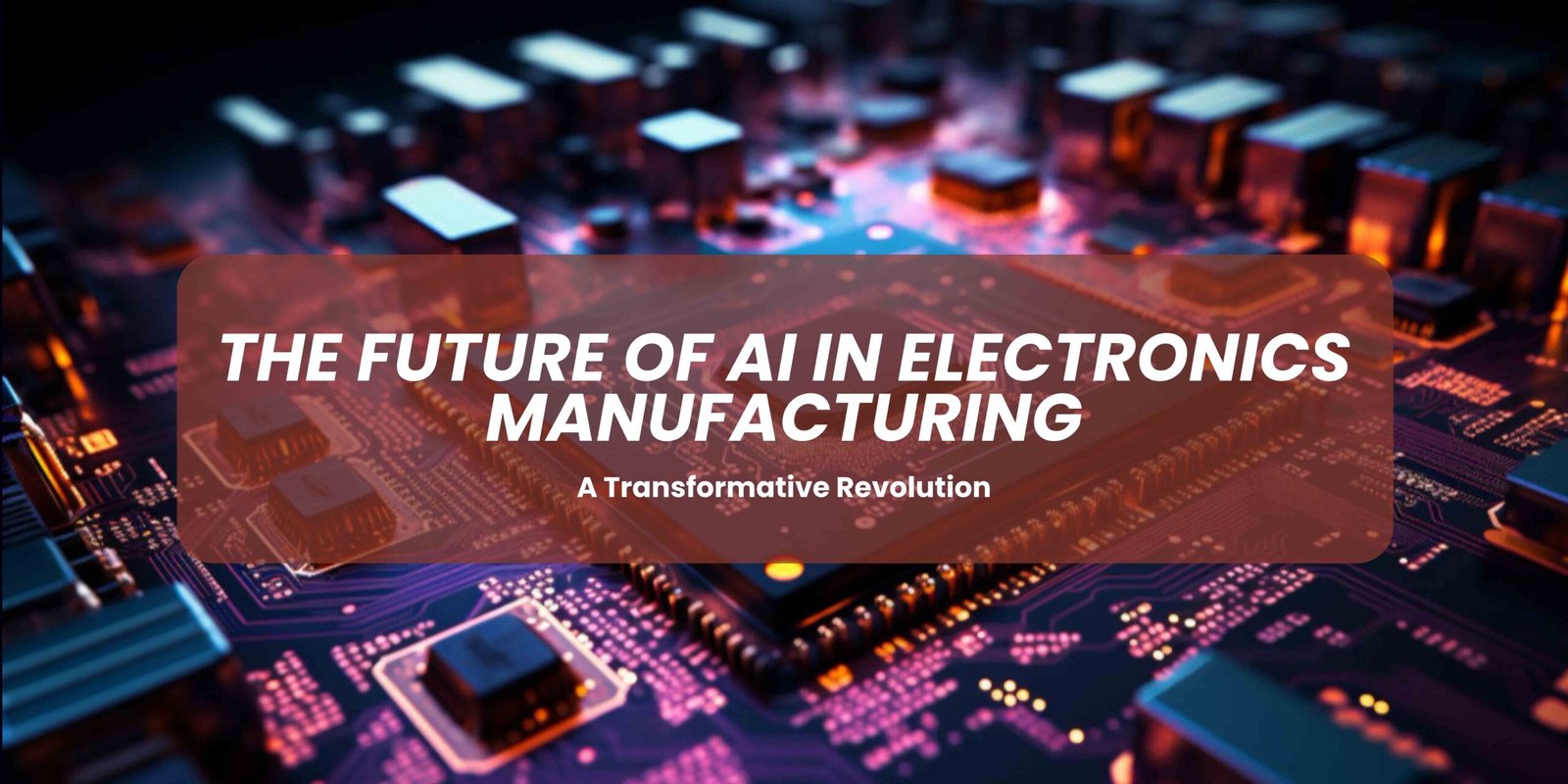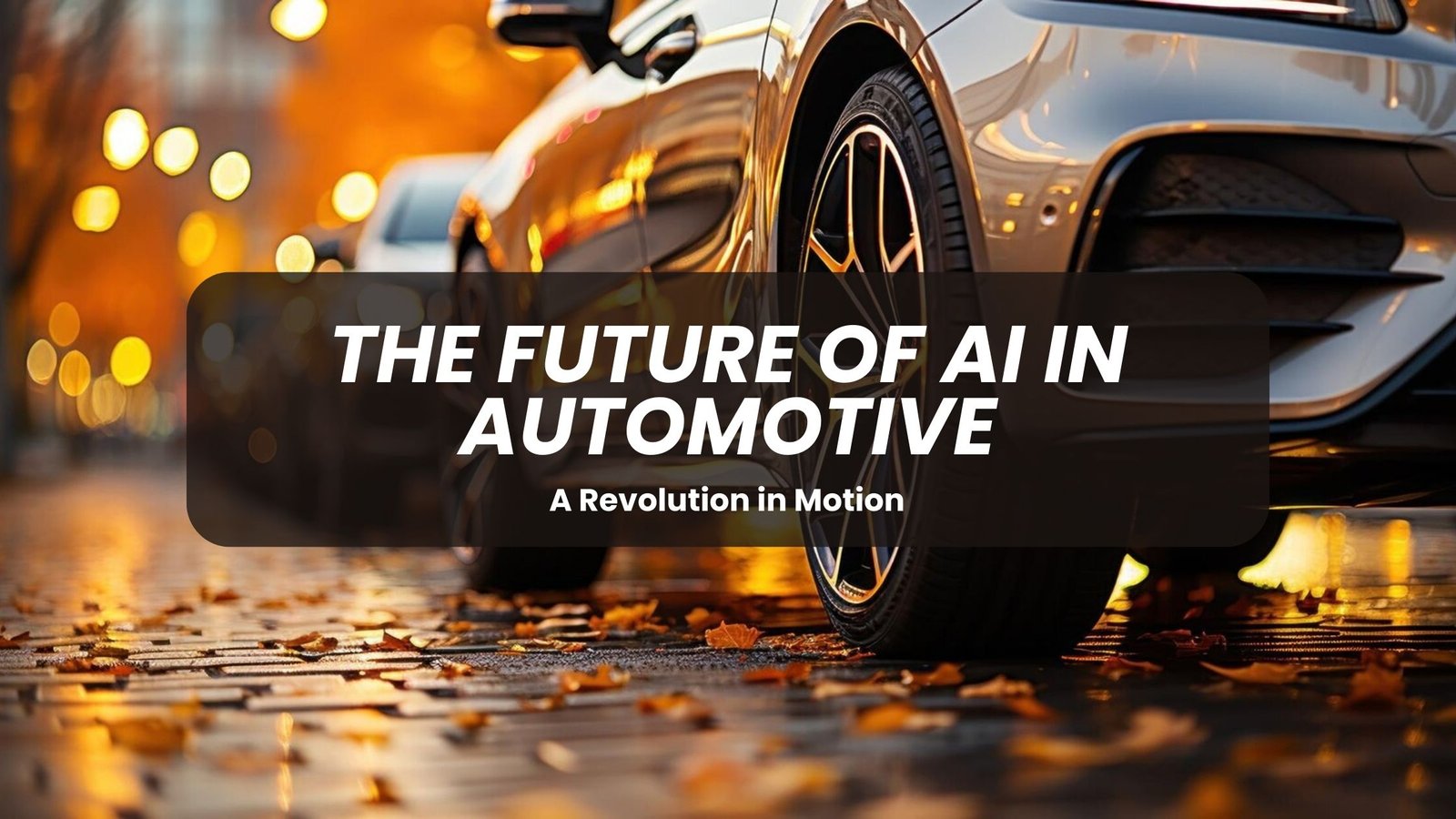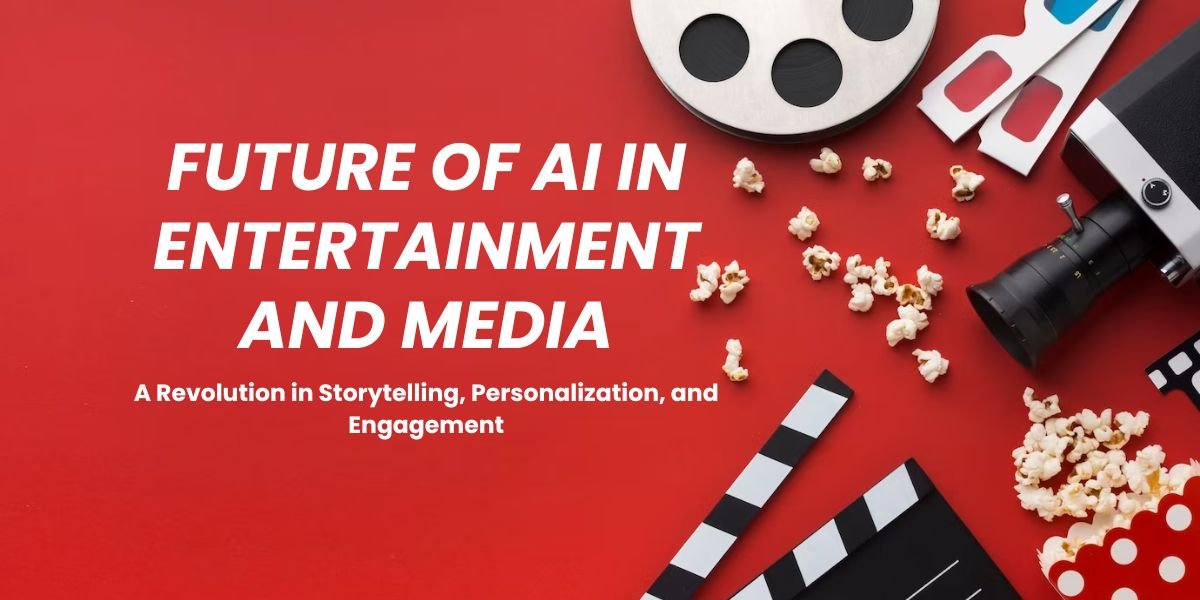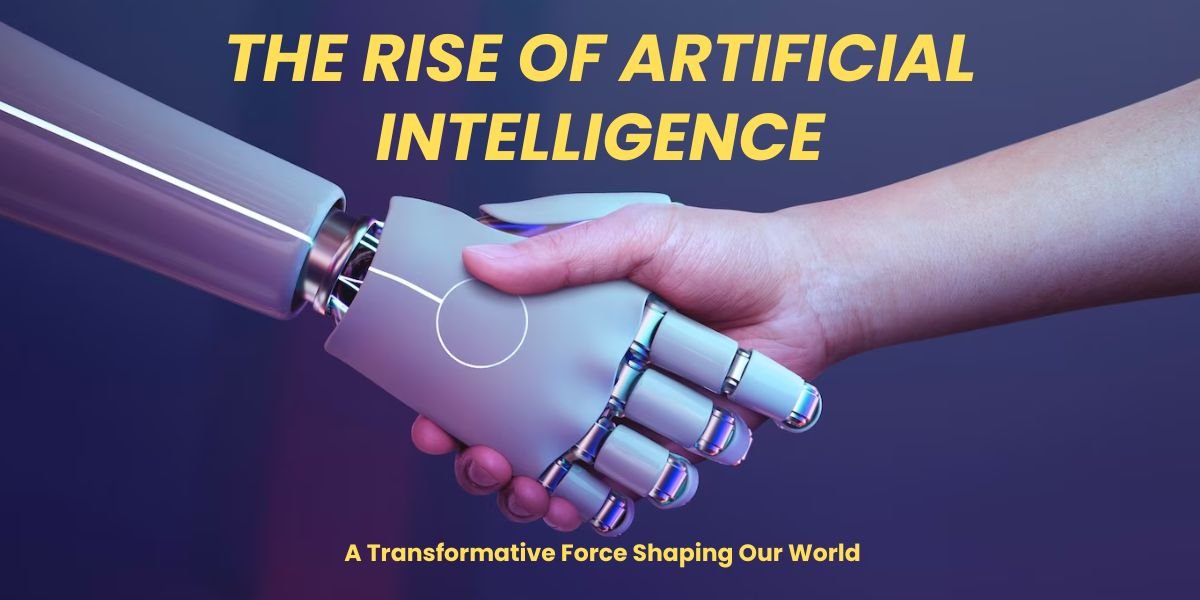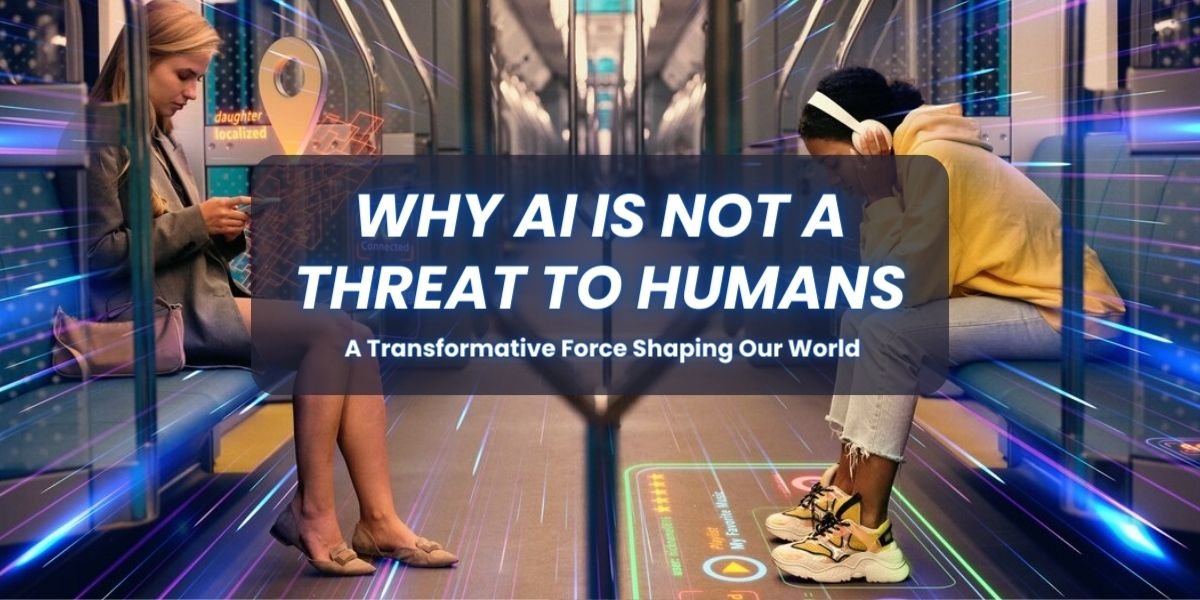How Will AI Change the Future of Work and Job Displacement?
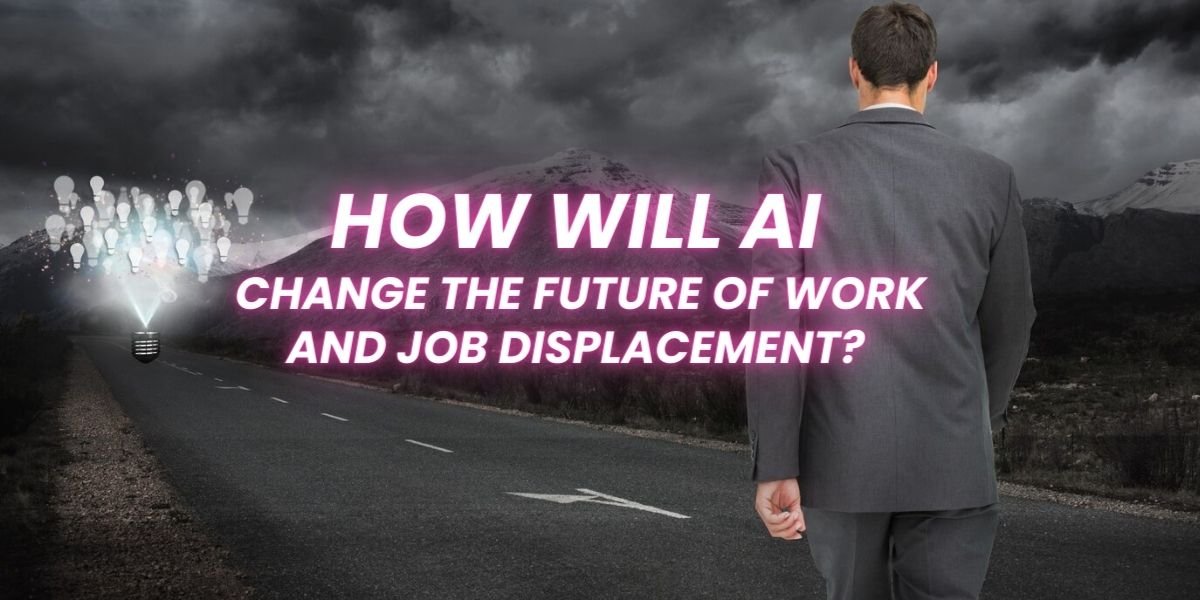
Artificial intelligence (AI) isn’t just a buzzword anymore; it’s seeping into nearly every facet of our lives. Your curated social media recommendations? Powered by AI. That self-driving car prototype? Guided by complex AI algorithms. It’s only natural that as AI grows ever more sophisticated, it’s bound to shake up the very foundations of how we work.
This raises an important question: How will AI change the future of work and job displacement? The answer is complex and far from certain. AI holds the power to automate tasks that were once the exclusive domain of humans. This offers incredible potential for greater productivity and efficiency in a variety of industries. Imagine a world where doctors can access AI-powered diagnostic tools that rapidly analyze vast quantities of medical data, aiding them in faster, more accurate decisions. Or envision factories where robots tirelessly assemble complex products with precision impossible for humans.
But the prospect of AI’s evolution also gives rise to legitimate concerns about job displacement. As machines become increasingly adept at tasks ranging from mundane data entry to complex decision-making, will some jobs become obsolete? And if they do, how can workers and economies adapt? These questions weigh heavily when thinking about how AI will change the workplace.
The truth lies somewhere in the middle. AI won’t simply wipe out jobs but rather profoundly transform them. It has the potential to create new jobs and industries we haven’t even imagined yet. We’re only on the cusp of seeing what AI-fueled innovations will bring. To navigate this uncharted terrain, we need careful planning, a readiness to adapt, and a commitment to developing the right blend of technical abilities alongside essential human skills. This will be the key to thriving, not just surviving in a world increasingly shaped by AI.
AI: Automating Tasks and Augmenting Decision-Making
The influence of AI on the workplace has a two-pronged effect: automation and decision-making support. How will AI change the future of work and job displacement? One of the core answers lies in the ability of AI to automate a growing range of tasks previously performed by humans. AI algorithms are mastering routine and repetitive processes, whether physical tasks in a factory setting or cognitive tasks like data analysis and report generation.
This automation is a double-edged sword. While it drives efficiency and can free up workers from tedious tasks, it also has the potential to displace jobs. However, it’s important to understand that AI’s role is not limited to simply replacing human labor. In many cases, AI will change how jobs are done by augmenting human decision-making.
Imagine a doctor using AI algorithms to analyze medical images for faster and more accurate disease diagnosis. Or, consider a financial advisor utilizing AI models to recommend personalized investment strategies for clients. In these scenarios, AI isn’t taking away a person’s job, but providing powerful tools to enhance their capabilities.
The true power of AI lies in this collaborative potential. Its ability to process massive amounts of data at lightning speed, to discover patterns invisible to the human eye, opens up new opportunities for innovation. As AI keeps getting smarter, its role in augmenting human expertise across various fields will deepen. This interplay between humans and machines will redefine workflows and create exciting possibilities. Of course, to navigate the future of work successfully, it will be paramount to address the challenge of potential job displacement while embracing the potential of human-AI collaboration.
Job Displacement: The Concerns and Potential Impacts
The question, “How will AI change the future of work and job displacement?” can’t be answered without addressing its most significant concern – the potential for widespread worker displacement. It’s the elephant in the room. While we can’t predict the future with absolute certainty, various studies and reports shed light on the extent of this change.
Varying Predictions: A McKinsey Global Institute report estimates that up to 800 million jobs could be lost to automation by 2030. In contrast, PwC suggests that AI will create roughly as many jobs as it displaces. While figures vary, there’s consensus that certain categories of work are at higher risk.
Vulnerable Jobs: Jobs involving routine, predictable tasks in areas like manufacturing, customer service, and transportation are most vulnerable to displacement by AI. It’s not just about manual labor– AI can also streamline administrative work and impact roles that were once considered relatively safe.
Economic and Social Consequences: Large-scale job displacement has the potential to cause significant economic disruption and exacerbate existing inequalities. Policymakers, businesses, and educators must collaborate to manage this transition and prevent widespread hardship.
Beyond the Worst-Case Scenario: Instead of focusing solely on the negative, it’s crucial to see this as a time of transformation. Yes, some jobs will disappear, but with thoughtful planning, retraining, and upskilling, workers can adapt. New jobs will emerge in areas we can’t yet fully imagine, much as the internet revolution did. It’s about staying ahead of the curve.

New Opportunities Will Emerge
While it’s important to acknowledge the risk of displacement, the future isn’t entirely bleak. As the question “How Will AI Change the Future of Work and Job Displacement?” implies, AI isn’t just about replacing jobs – it’s about creating them too. AI’s evolution opens the door to entirely new types of professions.
We’ll see increased demand for professionals who can build, maintain, and manage AI systems–think AI engineers, data scientists, and machine learning specialists. But the need goes beyond purely technical roles. There will also be a growing need for experts who can bridge the gap between technology and its applications. Roles like AI ethicists, who address the moral implications of AI use, and AI trainers, who ‘teach’ algorithms to perform tasks effectively, will become crucial.
Additionally, AI will boost productivity, drive innovation, and enable the creation of new products and services. This transformation will create opportunities across a range of industries for:
- Creative professionals: AI can assist in content generation, design, and even artistic expression, empowering those with a creative vision.
- Entrepreneurs: The accessibility of AI tools can democratize innovation, enabling entrepreneurs to develop new businesses and solutions more rapidly.
- Healthcare practitioners: AI-powered diagnostics and personalized treatment plans can transform medical care and improve patient outcomes.
Thinking about the future of work necessitates looking beyond just potential losses. How will AI change the future of work and job displacement? It will open new avenues for human ingenuity, pushing us into new roles and collaborations we can scarcely imagine today.
Reports for Further Reading:
- World Economic Forum – The Future of Jobs Report
Skills for a Changing Landscape: Adaptability is Key
The question, “How Will AI Change the Future of Work and Job Displacement?” leads directly to concerns about what skills will be essential for success. And while technical skills in growing fields like data science and AI development will undoubtedly be vital, the transformations AI will bring make adaptability the most powerful ability to cultivate.
Here’s why adaptability matters:
The Unpredictable Pace of Change: AI is evolving rapidly. The jobs of tomorrow may involve technologies that don’t even exist today. Adaptability means being open to learning new tools and processes throughout your career.
Blurring Lines Between Jobs: AI will reshape roles, requiring workers to be versatile. A marketer, for example, may need to learn basic data analysis skills, while a developer might find themselves needing strong communication skills to work with AI systems.
The Need for Human Strengths: As AI takes over the routine, what will separate humans in the workplace? Creativity, critical thinking, complex problem-solving, empathy, and adaptability itself become even more valuable.
How to Enhance Your Adaptability
- Lifelong Learning Mindset: Embrace the idea that your education doesn’t end with your formal schooling. Seek out online courses, industry workshops, and opportunities to keep learning.
- Diverse Experiences: Step outside your comfort zone. Take on projects that stretch your usual skills or involve cross-functional collaboration to broaden your understanding.
- Growth Mindset: Cultivate a belief that your skills can grow and that challenges are opportunities for development, not roadblocks.
The future of work alongside AI will bring uncertainty, but also immense opportunity. By prioritizing adaptability alongside technical expertise, you’ll be well-positioned to navigate the changing landscape and thrive.

Embracing Human-AI Collaboration
The question “How will AI change the future of work and job displacement?” shouldn’t lead to a fear of technology. Instead, the focus needs to shift towards understanding how we can build effective collaborations between humans and machines. The most successful workplaces aren’t those that see AI as a replacement for human intelligence, but those that understand how AI can augment what humans do best.
Think of it as the ultimate power team. AI excels in tasks requiring speed, pattern recognition, and the ability to handle vast amounts of data. This frees up human workers from the mundane and repetitive, allowing them to focus on more strategic, creative, and empathetic tasks. Doctors aided by AI diagnostic tools can make faster, more informed decisions while devoting more time to patient interaction and personalized care. Financial analysts can use AI predictions to spot hidden market trends but maintain their human intuition for contextualizing information and making complex judgment calls. Customer service representatives supported by AI-powered chatbots can handle straightforward queries leaving them available for more complex problem-solving.
The evolution of work will see the emergence of new hybrid roles, roles that fuse technical understanding of AI systems with deep domain expertise within a particular industry. The winners in this landscape will be those who embrace the human-AI partnership. This means not only technical upskilling but also cultivating empathy, communication abilities, and an understanding of where human strengths complement the power of machines.
Responsible AI: Fairness, Inclusivity, and Transparency
As we explore “How Will AI Change the Future of Work and Job Displacement?”, we can’t ignore the importance of responsible AI and the ethics behind its development. AI has the power to streamline processes and deliver insights that are beyond human capabilities. However, when trained on biased or incomplete data, it can perpetuate and even amplify existing societal inequalities.
Imagine an AI system used in the hiring process that consistently favors resumes with certain names or from particular neighborhoods, mirroring historical discrimination. Or an AI-powered loan approval tool biased against certain demographics. These are not hypotheticals – such instances of algorithmic bias have already emerged.
To build trust in AI and harness its potential benefits, fairness, inclusivity, and transparency are non-negotiable. It requires deliberate efforts to diversify the teams that design AI systems, ensuring a range of perspectives to counter inherent biases. We need to critically examine the data we feed into our models – is it representative of the real world?
Additionally, transparency is key. The ability to explain how an AI model arrives at its decisions is crucial for accountability. If an AI system denies someone a loan, or flags a medical image as potentially problematic, understanding the rationale behind such decisions is essential. This allows for potential errors to be identified and biases mitigated.
Addressing these challenges is not merely a technical problem. It requires a broader societal conversation about the values we want embedded in our AI systems, and how we ensure they serve the common good.

Preparing for an AI-Powered Future
As we explore “How Will AI Change the Future of Work and Job Displacement?”, we can’t ignore the importance of responsible AI and the ethics behind its development. AI has the power to streamline processes and deliver insights that are beyond human capabilities. However, when trained on biased or incomplete data, it can perpetuate and even amplify existing societal inequalities.
Imagine an AI system used in the hiring process that consistently favors resumes with certain names or from particular neighborhoods, mirroring historical discrimination. Or an AI-powered loan approval tool biased against certain demographics. These are not hypotheticals – such instances of algorithmic bias have already emerged.
To build trust in AI and harness its potential benefits, fairness, inclusivity, and transparency are non-negotiable. It requires deliberate efforts to diversify the teams that design AI systems, ensuring a range of perspectives to counter inherent biases. We need to critically examine the data we feed into our models – is it representative of the real world?
Additionally, transparency is key. The ability to explain how an AI model arrives at its decisions is crucial for accountability. If an AI system denies someone a loan, or flags a medical image as potentially problematic, understanding the rationale behind such decisions is essential. This allows for potential errors to be identified and biases mitigated.
Addressing these challenges is not merely a technical problem. It requires a broader societal conversation about the values we want embedded in our AI systems, and how we ensure they serve the common good.
Final Verdict: Charting a Path Forward
The question “How will AI change the future of work and job displacement?” is complex and evolving. While there’s potential for some jobs to vanish, the greater impact is likely a transformation of existing roles alongside the emergence of entirely new ones. The transition won’t be seamless, requiring proactive planning. It’s essential to start thinking about workforce transitions and pathways for reskilling workers whose jobs are at risk of automation.
The future belongs to those who adapt. Individuals must embrace lifelong learning and prioritize both their technical and soft skills. Businesses need to invest in AI adoption, retrain their workforce, and create a collaborative environment where humans and AI work hand-in-hand. Policymakers have a significant role in safeguarding workers, promoting retraining, and ensuring responsible AI development.
AI has the potential to revolutionize the workplace, boosting productivity, and driving innovation. By embracing collaboration, focusing on fairness, and investing in human development alongside technological advancement, we can shape a future where AI serves to augment human capabilities, creating new opportunities and a workforce poised to thrive.
F&Qs
It’s unlikely AI will completely take over all jobs. While some jobs are more susceptible to automation, AI creates new job opportunities simultaneously. The key lies in adapting and developing the skills needed for this new landscape.
Industries heavily reliant on routine tasks like manufacturing, transportation, customer service, and data processing are likely to see the most significant AI disruption. However, almost all sectors will experience some degree of change.
Jobs demanding creativity, empathy, complex social interactions, and strategic thinking are least vulnerable to AI. Think healthcare professionals, teachers, artists, and those in management roles requiring nuanced human skills.
Focus on developing a mix of technical skills (coding, data analysis, AI knowledge) and foundational soft skills (problem-solving, communication, critical thinking). Most importantly, cultivate a lifelong learning mindset.
AI can potentially exacerbate existing inequalities if not implemented responsibly. It’s crucial to address biases in AI systems, make upskilling opportunities accessible, and create policies promoting inclusivity.
Automation generally refers to replacing tasks with machines or software. AI goes further, with systems capable of learning, adapting, and potentially making decisions with less explicit programming.
Businesses should invest in AI technologies strategically, provide reskilling opportunities for employees, and create a culture that encourages innovation and adaptability.
Governments can play a vital role in regulating AI development, funding reskilling programs and safety nets for displaced workers, and ensuring AI applications are ethical and unbiased.
If you appreciate this information, please share it.

